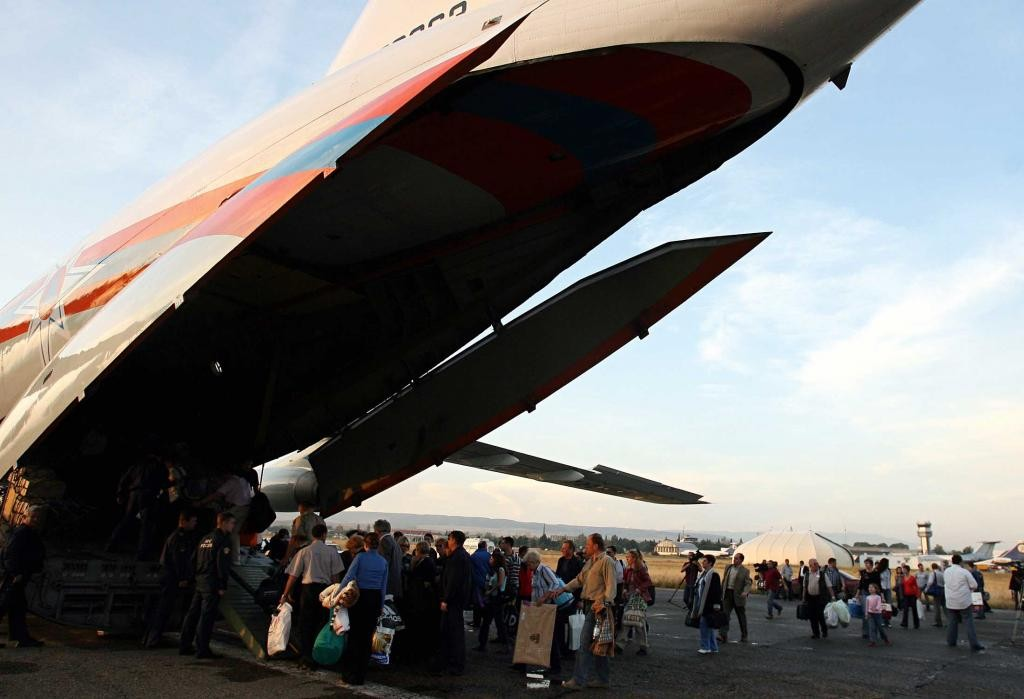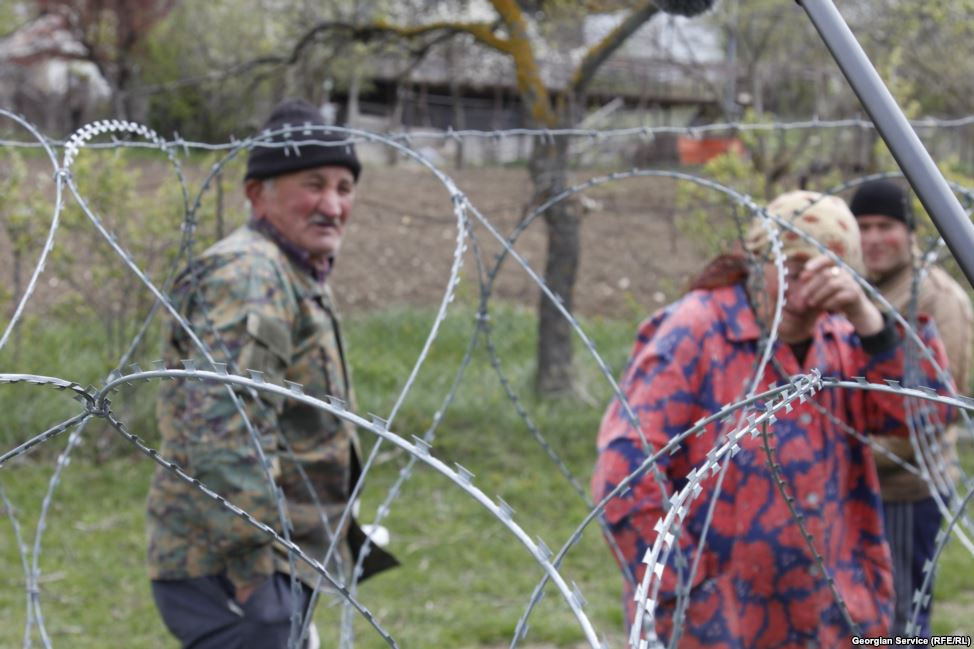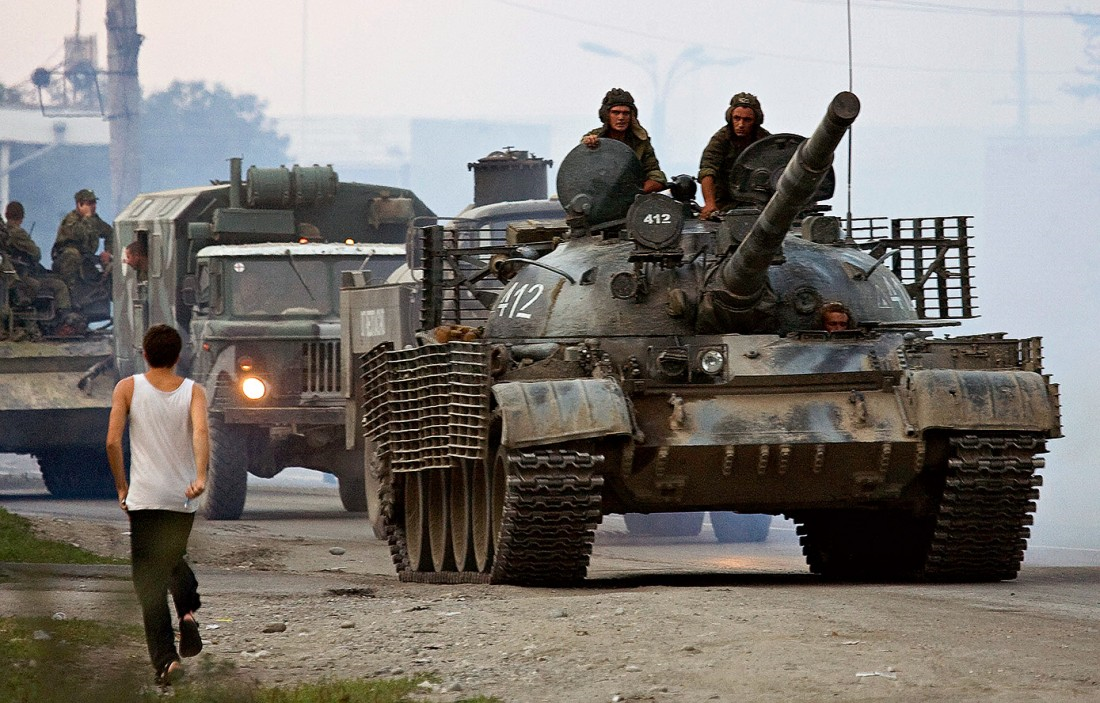8 levers that Russia can use against Georgia
1. Reblocking increased export to Russia
In 2013, a few months after the change of power in Georgia, Russia lifted economic embargo against Georgia, introduced in 2006, and Georgian products returned to the Russian market. US $ 275 million worth of products (mainly, wine and mineral water) were exported from Georgia to Russia in 2014. With this index, Russia regained Georgia’s major exporter-country’s place.
Low quality of Georgian products was named as an official reason for introducing embargo in March 2006. However, even Moscow admitted, that the decision was politically motivated.
At that time, 80 percent of Georgian products were entirely dependent on the Russian market. Thus, closure of the Russian market inflicted major losses to certain businessmen and country’s economy. If the Kremlin decides to repeat that again, this time the economy of Georgia will lose hundreds of millions of lari. Economy is an important lever in Russia’s hands.
2. Suspension of Russian investments
According to the National Statistics Office, in 2014, direct Russian investments in Georgia amounted to US$82 million. Despite the fact that Russia has been ranked the eighth in the investments rating, hampering these investments is an important lever in Moscow’s hands, especially given the fact that a huge portion of Russian money falls on such strategic sectors as energy, water and communications.
3. Creating problems to Georgian citizens and ethnic Georgians residing in Russia
Hundreds of thousands of ethnic Georgians are living in Russia (exact data are not available. A figure from 150 thousand to one million is named). Some of them are Russian citizens. Creating problems to them is another lever in Russia’s hands and it has already used it once.
After the arrest of several Russian officers on espionage charges in Georgia, on 27 September, 2006, the Russian government launched a mass deportation campaign against Georgian citizens. In late 2006, thousands of Georgian citizens were ousted from Russia.
Some of the deportees were sent home in humiliating conditions – in cargo aircraft. This process resulted in casualties. Later, Georgia filed a lawsuit against Russia in Strasbourg-based European Court of Human Rights and won the case.
In case of oppression and deportation of ethnic Georgians from Russia, thousands of people are going to face financial problems, since Georgians living in Russia render financial assistance to their families left in the homeland. Whereas in Georgia, where unemployment rates are high, the deportees will have problems finding jobs.

4. Suspension of money transfers from Russia
Money sent by family members living abroad is the only source of income for thousands of families in Georgia. Money transfers from abroad make 9% of country’s GDP. Russia is leading in the rating of countries, from which money transfers to Georgia are made. US$709.23 million were transferred from Russia to Georgia in 2014, which is 49.2% of the total money transfers. Not only will hampering of transfers from Russia cause serious problems to thousands of families, but will also have adverse effect on the national currency exchange rate.
5. Permanent tension at the administrative border of South Ossetia
Recently increased cases of shifting by 200-300 meters of the administrative border of South Ossetia by Ossetian and Russian military, makes the situation in the conflict area particularly unstable. Georgian peasants residing there complain that as a result of transfer of the boundaries, their pastures and arable land were left on the Ossetian side and they call for the government’s reaction.
Meanwhile, the Georgian side confines itself to making rather cautious statements and terms this process a ‘creeping occupation’ and purposeful provocation. However, if this process continues and becomes more regular, the situation in the conflict area may possibly worsen.

6. Use of military force
According to Georgian experts, the is no threat of any armed confrontation between Russia and Georgia at this stage and military force is the last resort that Russia itself will find difficult to use. However, people in Georgia tend to think that after the war 2008, and, especially, against the background of the recent developments in Ukraine the use of military force by Russia shall not be excluded.

7. Soft power and ideological levers
That is the lever that Georgian experts are particularly wary of nowadays, as they claim it has already been put to use. The pro-Russian non-governmental organizations that disseminate anti-western messages through their partner electronic and print media have become particularly active in Georgia in the past two years.
Anti-western rhetoric in social networks, online media, some radio and television programs has become very noticeable. There are dozens of such organizations in Georgia. The sources of their funding are not publicly known, though some Russian funds have included these organizations in their partners’ lists. For example, according to Alexander Dugin’s organization, its partner in Georgia is the ‘Eurasian Choice’ – one of the most active anti-western organizations.
The Gorchakov Foundation that was set up on the initiative of Russian prime minister Dmitry Medvedev has launched its activity in Tbilisi. It openly declares that its aim is to disseminate Russian soft power. These organizations often organize anti-NATO and EU rallies, demand Georgia’s neutrality, erection of a monument to Stalin, etc.
For example, the ‘Eurasian Institute’ organized school students’ meeting with the WWII veterans. As it was pointed out at the meeting, ‘Georgia managed to avoid fatality due to the unity and heroism of the Soviet people and the wisdom of their leader, the entire Georgia’s pride – Joseph Stalin.’
These organizations are actively supported by media partners – online publications, several newspapers and the ‘Objective’ broadcasting company. A major multimedia project of Russian propaganda -‘Sputnik’, headed by the Kremlin propagandist, journalist Dmitry Kiselev, also operates in Georgia.
Pro-Russian NGOs’ organized rally outside Georgian President’s residence. Rally participants demand restoration of diplomatic relations with Russia and declaration of Georgia’s military neutrality
8. Church, Orthodoxy and Common Religion
A theme of common religion is often used in social networks and media by those, who are disseminating anti-western messages and regard the West as the enemy. Their narrative is that Europe is fighting against Georgian Orthodox Church and traditions, while Russia, among other things, is a country of the common faith. Such messages are often spread by clergymen themselves. Given the fact that Georgian Church enjoys great authority, it can be a serious lever in Russia’s hands.



















